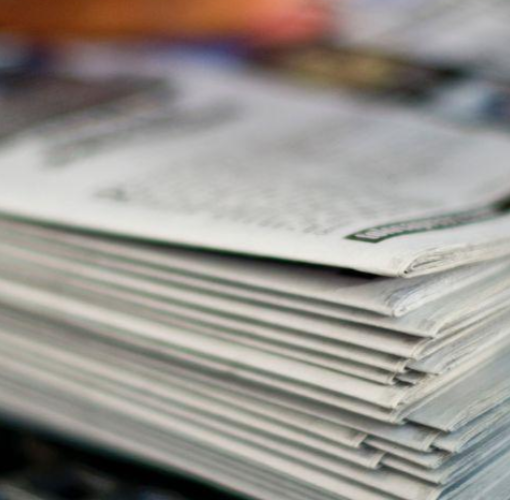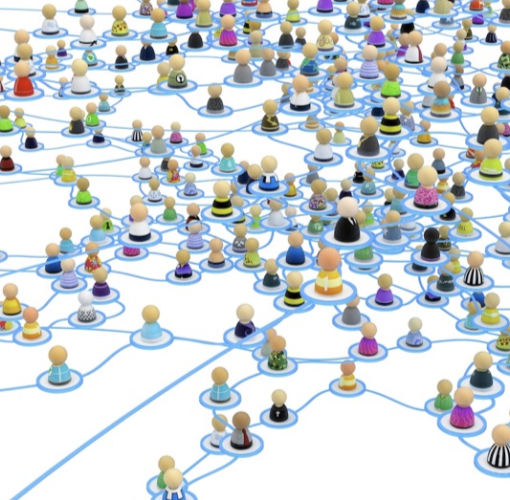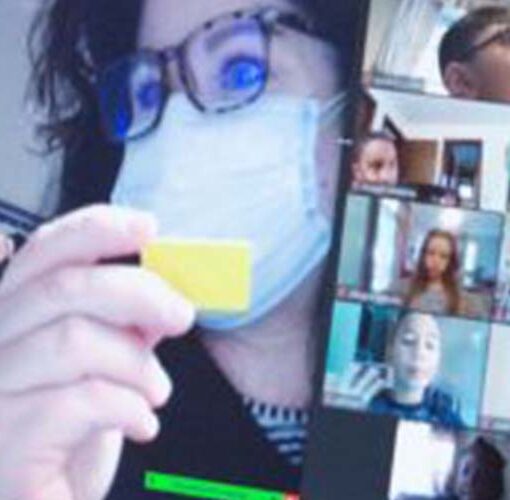You might think I’ve committed a careless typo in today’s blog title. But I haven’t. It’s true that my experience, relationships, trainings, and observations confirm that nearly everyone I know occasionally (or often) suffers from information overload, including me.
The complaint is usually spoken as if it’s a natural outcome of living, like you went looking for something in your attic and were dismayed to find boxes and boxes of stuff you didn’t know what to do with.
Facts, falsehoods, trivia, advice–limitless words and numbers– are no longer something we need to search for. We’ve arranged our lives so they arrive passively. They’re everything, everywhere, all at once, like 2022’s frenetic Oscar winner. All that data is not just an overload; it’s become our Information Overlord, making us do and feel things we might not otherwise, as individuals and as a culture.
As I have come to think about our choices regarding this current condition, I’ve been asking myself three questions that I’d like to share with you and would love to hear your thoughts.
1. What is an increased exposure to information doing to us?
You can likely imagine situations, even whole professions, where a mindset of gathering as much information as possible should be a good thing. Detectives, scientists, and economists come to mind. But technology’s offer to provide access to the world’s most expansive and minute data would make even Sherlock Holmes shudder. It’s too much to sift through. It’s always tempting, distracting, and confusing us.
You don’t need to look far to witness the unsavory byproducts of having constant information at our fingertips. Maybe you had to swerve today due to a distracted driver, biker, or walker. A friend texts you about a storm forecast that cancels your plans but never materializes. People are looking at each other less, over dinner, at the store, passing on a sidewalk. The standard posture today is that telltale phone hunch.
And you’ve no doubt noticed parents interacting more with their phones than their tots, even handing children as young as infants their own screen. Infotech is a child’s first language. (Ironically, studies show this “early intervention” likely delays and disrupts other cognitive processes.) Schools continue the well-intentioned headstart program of staring at screens under the mantra of career readiness.
Information companies couldn’t pay us to do a better job of nurturing early information addiction. Actually, we pay them for it. A lot. (The latest iPhone runs over $1500.) We should know better.
Of course I am not advocating ignorance. With disreputable data rampant, we need more than ever to stay educated and aware of what’s important. It’s just that persistently ruminating over the cacophony of information has substituted for being present. I believe, somewhere inside us,
We know that less (information) is better than more
2. Why is information overload so common?
Innovation has gifted us with a 24/7 news cycle to check; pop ups, push notifications, and “fitness” devices to monitor; car, doorbell, and thermostat alerts to attend to; weather, stock, and dating apps to follow; text messages, posts, and emails to skim and respond to; blogs, podcasts, memberships, likes, follows, and groups to stay up on; and product reviews, advice websites, columns, channels, tweets and TikToks (a sound effect that in movies is usually the harbinger of a time bomb) to repost, reply, and pursue. It’s exhausting just listing them, and I’m only scratching the surface.
We’ve been programmed to feel a desperate “need to know.” FOMO (Fear of Missing Out) is a perfect strategy for creating new markets and pliant consumers.
The majority of information we digest has little nutritional value. It’s either common sense (Stay hydrated? Your body knows it’s thirsty, if you’ll listen to it); untrustworthy (Rain forecast? Looking out your front door is nearly as accurate, plus you own an umbrella); or better discovered personally (Experience really is the best teacher). Perhaps we need to feel validated– Aha! I knew my pulse was up!– but I find it’s more meaningful and lasting when it comes from human contact and interacting with reality than through a device.
Bonus thought: If you’re open to imagining something more sinister, it may be that our media and political overlords keep us both maxed out and befuddled so we have less capacity to make decisions for ourselves. Alarm, fear, and anger erode coherence and reason. It’s become all too common to settle for the belief that life is too much, too complex, and beyond our influence to control, so we leave it to “the professionals.”
I don’t believe any problem is beyond human will and ingenuity. So, no matter how else it may seem,
Remember that information providers do not have our best interests in mind.
3. Can we (should we) have a different relationship with information?
We’re made to think that all this information is helping us. Info disseminators spend (and make) a lot of money, and mine a lot of our willingly-given data, to be smarter about this than we are. They’ve convinced us that if we constantly wear the watch, check the app, review the messages, and attend to the notification pop ups, we won’t miss something important, fall prey to danger, or be out of touch. While any real and personal harm from weather, war in the middle east, or your blood sugar level may be slightly possible, the tradeoff for constant knowledge is fear, worry, anxiety, disconnection, and avoidance. These are real and more damaging. To take control back, we can
Make our own decisions and filter the kinds and amount of information we attend to.
A first level filter sorts out what really matters, like our health, our neighbors, our planet. We’re here for a short time, so let’s not screw those up. The next filter might pass on information that makes us happy and productive enough, which means not all the time and not at some false maximal ideal (“my best self!”). My third filter would help me focus on whatever helps me learn and grow, that both satisfies and creates more curiosity. Your information filters may differ. But any filter is probably better than none.
Reducing information overload has parallels to addressing addiction, with similar strategies for curbing it.
- Be present. Keep an open mind, eye, and ear to what’s happening in the real world.
- Focus more on what keeps you fundamentally healthy and less about trivial minutiae.
- When something gets through your filter, seems important, don’t take the first source as gospel.
- Avoid information spirals, sticking to your path rather than what the technology wants you to follow.
- Listen to friends with integrity. (Sorry, influencers, that rules you out.)
Linda and I periodically turn our phones off or leave them home when we go out, limit our computer time, set email filters, look infrequently at social media, no longer randomly check where our family members are, and don’t take digital recommendations too seriously. It’s uncomfortable at first; I’m used to having answers, locations, and advice on demand. Ultimately, it is a relief, an experience of calm, clarity, and self control among the chaos.
I’m just scratching the surface of breaking free from my Information Overlord, but already I feel less burdened. Maybe it will diminish my online ratings, but I can live–and live better– with that.
⚙ Dr. Marc
July 2023
If you believe that someone in your professional or personal circle would benefit from reading and engaging in topics like this, please forward them this email. I only ever use email contacts to provide information such as this post, and will never share contacts with any other person or organization. To unsubscribe, reply with Unsubscribe.
Credits
Image of Information Overlord Image generated by Marc Natanagara using DALL-E2 at https://openai.com/dall-e-2
Resources and References
Bernstein, G. (2023, March 28). Technology addiction has created a self-help trap. Wired. https://www.wired.com/story/gaia-bernstein-technology-tobacco
Chu, J. et al. (2021, April 20). Attention or distraction? The impact of mobile phones on users’ psychological well-being. NIH National Library of Medicine. https://www.ncbi.nlm.nih.gov/pmc/articles/PMC8093572/
Kerai, S., Almas, A., Guhn, M. et al. Screen time and developmental health: results from an early childhood study in Canada. BMC Public Health 22, 310 (2022). https://doi.org/10.1186/s12889-022-12701-3
Menczer, F., Hills, T. (2020, December 1). Information overload helps fake news spread, and social media knows it. Scientific American. https://www.scientificamerican.com/article/information-overload-helps-fake-news-spread-and-social-media-knows-it
Wonder at Medium (2022, June 1). How much information does the human brain learn every day? https://medium.com/@askwonder/how-much-information-does-the-human-brain-learn-every-day-92deaad459a6
When duplicating this post in any form, please be sure to include the attribution in italics above.
When duplicating an infographic, be sure to include any attributions within or adjacent to the image.
©2023 Marc Natanagara, Ed.D. All rights reserved. Reprinted with permission.
Articles, services, and other resources accessible at authenticlearningllc.com






2 thoughts on “Information Overlord”
Marc, I am so appreciative of your thoughts and insights here! I have been personally thinking about much of this and in most instances could not agree with you more about the effects of the cross-section between information, technology and social/behavioral effects from both a psychological and sociological perspective. And I too have both experienced, and seen, these side-effects of that over-connectedness as well as the benefits in having made similar conscious decisions to re-calibrate how and when I connect to information through technology. Especially when that intersection between the two is managed by organizations who stand to benefit from every increased connectivity no matter the personal or social costs or consequences – and design algorithms and sociobehavioral models into those systems purposefully to manipulate the time we spend down engaging.
Thanks for your insight, Doug! Over-connectedness is a good way to put it. We ought to co-write an article that fleshes out some of these points. I doubt it would make us popular, but we can’t be the only ones concerned!